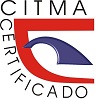Los dispositivos móviles como medio de enseñanza – aprendizaje en el proceso pedagógico
Mobile devices as a means of teaching - learning in the pedagogical process
Palabras clave:
dispositivos móviles, práctica educativa, enseñanza – aprendizaje, nuevas tecnologías, tecnología emergentes, aprendizaje móvilResumen
Las Tecnologías de la Información y la Comunicación han causado un gran impacto en todas las actividades humanas. Con la irrupción de los dispositivos móviles se ha acelerado un proceso profundo de transformación en la disponibilidad y el acceso al conocimiento más utilizado en todos los ámbitos sociales, estos dispositivos representan un escenario ideal ya que las nuevas tecnologías que se utilizan frecuentemente en la sociedad se pueden integrar mediante una planificación racional y estructurada al proceso de enseñanza - aprendizaje en la educación, viéndose así la posibilidad de insertar el aprendizaje móvil al proceso de enseñanza aprendizaje, pero: ¿Cómo lograr incorporar esta tecnología emergente a la práctica educativa?, ¿cuál sería el resultado esperado del uso de los dispositivos móviles en educación?, estas son algunas de las interrogante a las cuales esta investigación tratara de dar claridad.
Abstract:
Information and Communication Technologies have caused a great impact on all human activities. With the emergence of mobile devices, a profound process of transformation in availability and access to the most widely used knowledge in all social spheres has been accelerated. These devices represent an ideal scenario since the new technologies that are frequently used in society are can be integrated through rational and structured planning into the teaching-learning process in education, thus seeing the possibility of inserting mobile learning into the teaching-learning process, but: How to incorporate this emerging technology into educational practice? What would be the expected result of the use of mobile devices in education? These are some of the questions that this research will try to clarify.
Keywords: mobile devices; educational practice; teaching – learning; new technology; emerging technology; mobile learning.
Descargas
Citas
GEF, G. E. (Dirección). (2010). Crisis del Modelo Educativo e Innovación Disruptiva en las Aulas. [Película]. Obtenido de http://www.youtube.com/playlist?list=PLCE9F032EDD6D9D43
Hokyoung, R., & Parsons, D. (2009). Designing Learning Activities with Mobile Technologies. En R. Hokyoung, D. Parsons (Eds.), Innovative mobile learning. Techniques and Technologies (pp. 1-20). Hershey: Information Science Reference.
Koole, M. (2006). The framework for the rational analysis of mobile education (FRAME) model: An evaluation of mobile devices for distance education pág 48. Obtenido de http://citeseerx.ist.psu.edu/viewdoc/download?doi=10.1.1.88.12&rep=rep1&type=pdf
Koole, M. (2009). A Model for Framing Mobile Learning. En M. Ally (Ed.), Mobile Learning: Transforming the Delivery of Education and Training pág. 25-47. Athabasca University.
Laurillard, D. (1993). Rethinking University Teaching. A framework for use effective use of educational technology. London: Routledge.
Laurillard, D. (2002). Rethinking University Teaching. A conversational framework for the effective use of learning technologies. London: RoutledgeFalmer.
Laurillard, D. (2007). Pedagogical forms for mobile learning: framing research questions. En N. Pachler (ed.), Mobile learning: towards a research agenda (pp. 153-175). London: WLE Centre, IoE.
Laurillard, D. (2012). Teaching as a Design Science. Building Pedagogical Patterns for Learning and Technology. New York: Routledge.
Moore, M. (1973). Toward a theory of independent learning and teaching. Journal of Higher Education, 44(12), pp. 661-679.
Moore, M. (1993). Theory of transactional distance. En D. Keegan (Ed.), Theoretical Principles of Distance Education (pp. 20-35). . New York: Routledge.
Park, Y. (2011). A pedagogical framework for mobile learning: Categorizing educational applications of mobile technologies into four types. The International Review of Research in Open and Distance Learning, (pp.78-102.). Obtenido de http://www.irrodl.org/index.php/irrodl/article/view/791/1699
Ramón Verdú, A. J. (2015). Propuesta de un Modelo Teórico de Enseñanza para Entornos de Aprendizaje Móvil en las Enseñanzas Artísticas Visuales. Murcia.
Traxler, J. (2009). Current State of Mobile Learning. En M. Ally (Ed.), Mobile Learning: transforming the delivery of education and training, (pp. 9-24). Athabasca University: Edmonton: AU Press.
UNESCO. (2013). Policy Guidelines for Mobile. Learning. Directrices para las políticas de aprendizaje móvil. pág. 35. París, Francia. Obtenido de http://www.unesco.org/new/es/education/themes/leading-the-internationalagenda/education-for-all
Publicado
Cómo citar
Número
Sección
Licencia
Derechos de autor 2022 Rafael Quetglas

Esta obra está bajo una licencia internacional Creative Commons Atribución 4.0.
Horizonte Pedagógico es una revista Open Access, lo que quiere decir que todo su contenido es accesible libremente sin cargo para el lector o su institución. Los usuarios están autorizados a leer, descargar, copiar, distribuir, imprimir, buscar o enlazar a los textos completos de los artículos de esta revista sin permiso previo del editor o del autor, de acuerdo con la definición BOAI de open access. Los autores que publican en esta revista están de acuerdo con los siguientes términos: Los autores conservarán los “Derechos de autor” y garantizan a la revista el derecho de ser la primera publicación del trabajo. La revista se encuentra protegida bajo una licencia internacional de Creative Commons Attribution License Atribución 4.0 Internacional (CC BY NC 4.0), que permite a otros compartir (copiar y redistribuir el material en cualquier medio o formato) y adaptar (remezclar, transformar y construir a partir del material), para cualquier propósito, incluso comercialmente. Bajo las siguientes condiciones: atribución (usted debe dar crédito de manera adecuada, brindar un enlace a la licencia, e indicar si se han realizado cambios y no comercial — Usted no puede hacer uso del material con propósitos comerciales. Puede hacerlo en cualquier forma razonable, pero no de forma tal que sugiera que usted o su uso tienen el apoyo de la revista o el autor de la publicación.






















